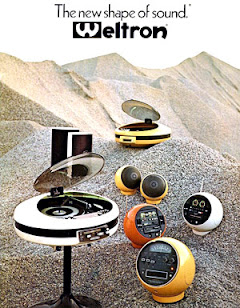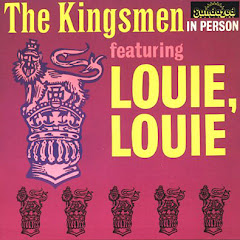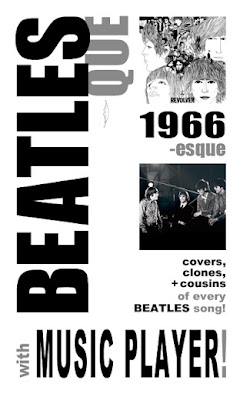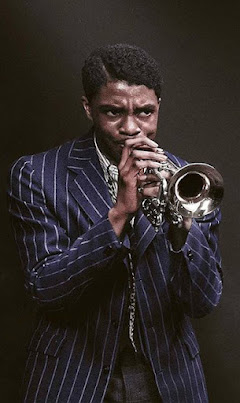"Beat is for Yoko Ono!"
- Public Enemy (1988)
"Yes, I'm a witch, I'm a bitch,
I don't care what you say
My voice is real, my voice speaks truth
I don't fit in your ways
I'm not gonna die for you, you might as well face the truth,
I'm gonna stick around for quite awhile."
-"Yes, I'm A Witch"-Yoko Ono (1973)
"(Yoko Ono is) the world's most famous unknown artist: everybody knows her name, but nobody knows what she does."
-John Lennon
People used to define Yoko without knowing anything about her or her work. With time, most aware people have caught up.
There was the old view. Now there is the true view.
Yoko has more than proved her worth to anyone qualified to see.
But she has earned her due sideways, too. If two things are the same, you can't credit one while denying the other. There are many artists from all disciplines who are revered, either initially or in retrospect, for doing the same things Yoko did, and most often after she did. By the default of fairness, she has also earned her due this way as much as directly.
With proper context it is impossible to deny her. Here are some words and music to prove it.
Shortcut to Music Players:
Chapter quick links:
- 1) ARTIST
- 2) ACTIVIST ROCK
- 3) WOMAN POWER
- 4) ASIAN
- 5) REBEL GIRLS
- 6) ART
- 7) MUSIC
- 8) NOIZE
- 9) PUNK
- 10) NEW WAVE
- 11) REMIX
- 12) GRATITUDE
- 13) JOHN LENNON
Yoko is a world-reknowned and respected artist who was successful well before The Beatles. She was a member of the early '60s rebel Fluxus artists, but prudently kept her independence from the dominant males. She was in league with and championed by La Monte Young, George Maciunas, and John Cage. Yoko is a conceptual artist, a creative outlook that eventually would transform Rock music.
While The Beatles were learning to play in Hamburg, Yoko had art performances at Carnegie Hall in 1961. Instead of a concert space, Yoko treated it as a theatre of ideas. The revelation guiding 20th century Art was 'art isn't an object, it's the idea behind it'. This freed art from being a craft skill into being a creative philosophy that anyone could use in life; we can all be artisans in how we think and act. Yoko's performance art encouraged the audience to become part of the art, turning an event into a moment of revelation and participation with no barriers.
In "Cut Piece" (1964) Yoko invited people to come up on stage with the option to cut pieces of her clothing until she was naked. It was an interactive test that tested all social barriers. Tokyo audiences were tentative and reverential. London audiences became so obnoxious that security had to intervene. It's on each of us to choose our own behavior; those who acted badly to Yoko only revealed something about themselves.
Yoko's themes have always been:
zen self solutions
transmutation of suffering
breaking barriers
participation
challenging preconceptions
identity
empowerment
possibility
sense of humor
This is what she shared with John Lennon, which would free and complete him.
Yoko's book "Grapefruit" (1964) was simple instructions for thinking creatively about the world around us. It was zen koans as conceptual art. It anticipated Brian Eno's celebrated "Oblique Strategies" (1975), a series of cards with possible solutions for creative dilemmas.
It's motif to "imagine" a possibility, thus creating a work of art in your mind, was the catalyst for John's anthem "Imagine" years later:
'Imagine the clouds dripping.
Dig a hole in your garden to
put them in.'
spring 1963
John Lennon and Yoko Ono were the boldest revolutionaries in Rock music that have ever been.
They scared the hell out of the repressive Nixon government and alienated the music press. Time has vindicated their heroism versus their detractors' cowardice.
Bob Dylan was catapulted by his early days of protest music. But other pioneers like Allen Ginsberg, Nina Simone, Lenny Bruce, and The MC5 were crucified for their activism, and only accorded their due in retrospect when their ideas were properly appreciated. Yoko is now celebrated like those brave artists.
Yoko and John were activist peers with Nina Simone, The MC5, Bob Marley, Marvin Gaye, Stevie Wonder, and Fela. And warmed the stage for future rebels like The Clash, The Au Pairs, Gang Of Four, Crass, Youth In Asia, Dead Kennedys, Killing Joke, U2, Midnight Oil, Public Enemy, Fugazi, Bikini Kill, Tribe 8, Meshell Ndegeocello, Anti-Flag, Sleater Kinney, Rage Against The Machine, and M.I.A..
Yoko is the strongest Feminist activist in Rock history.
And the first. She was saying it in 1968 before anyone had even heard of Gloria Steinem, which the British press persecuted her for.
Feminism was simply the moral crusade of the Civil Rights Movement extended to the other half of humanity. Its initial charter was for an equity that treated anyone as a full person, and an empowerment and respect for individuals. Yoko embodied the spectrum of this in her early '70s records.
Her experience and activism opened John's perspective, and their protest songs of the period are among the first, strongest, and most forward Feminist anthems ever made.
The Feminist mantra opened social awareness into percieving that "the personal is political"; that refuting the daily repressions of the individual was a political act. In her songs, Yoko canvased the range of the inner life of modern women through her own experiences, more so than any recording artist of the era.
Strong empowerment anthems like "Woman Power", "Yes I'm A Witch", and "Sister O Sisters". Sensitive partnership songs like "I Want My Man To Rest Tonight". Relationship troubles with "Yang Yang" and "I'm Moving On". Self-doubt and pain in "Death Of Samantha" and "She Gets Down On Her Knees". Self-destruction in "Approximately Infinite Universe" and "Peter The Dealer".
At the same time, Joni Mitchell was making piercing albums that easily matched Dylan, while getting slagged off by Rolling Stone as 'every musician's girlfriend'. And while Joni was gradually hailed as adventurous stretching from singer-songwriter into jazzy arrangements, Yoko's more eclectic experimentalism and unflinching activism was ignored entirely by the media.
If you watch any interview clips of John and Yoko from 1968 to 1975, notice how her comments are always cut off or brushed aside by the men involved. (Even John himself wrestled with it and leveled out across time.) Also notice that she is right, which makes them look worse.
Yoko's empowerment mantra would be picked up by The Au Pairs, Gang Of Four, Poison Girls, Crass, and the Riot Grrrl movement.
The British press hated Yoko because she was female and smart, but also because she was Japanese.
The flack hacks of the time were an older generation of men baised against Japan from WWII. And the handful of new counterculture (male) critics hadn't yet honed that out. An easy comparison is how Astrid Kirchherr didn't get as much grief for being a smart artist. (Perhaps because German still meant European.)
Current youth who've grown up on Manga, Anime, and Sony Playstations recognize that hate for what it was, and find it obvious and sad.
Yoko's forays into music in the late '60s paralleled the rise of other women from the Asian nations coming up. The all-female '60s band Dara Puspita hailed from Indonesia. The first all-female band signed to record entire albums on a major label was Fanny in 1970, who started out as three-fourths Filipina. As a playful dig on The Plastic Ono Band, there was The Sadistic Mika Band from Japan. This ushered later homeland acts like Plastics, Shonen Knife, Boredoms, Super Junky Monkey, Cibo Matto, Buffalo Daughter, and eX-Girl. From China, Meg Lee Chin of Pigface. From San Francisco came Pearl Harbour And The Explosions. From NYC comes Karen O and Yeah Yeah Yeahs.
Yoko worked from a system of tonal scales from a culture that Western ears weren't familiar with. In this regard she is as much a gateway to world musics as George Harrison has been heralded for. Now that world musics have become part of most folks vocabulary, we easily award respect to International singers like Djur Djura, Ofra Haza, Nusrat Fateh Ali Khan, Oumou Sangare, Les Mystere Des Voix Bulgares, and Sainkho Namtchylak, a respect that Yoko wasn't accorded.
"She's gonna hit back,
She's gonna kick back,
You won't know what hit you
Till you see her flashing (yeah)"
-Yoko, 1973
Yoko was too tough for her times.
The late '60s thought the only women in Rock were Janis Joplin and Grace Slick>. Yoko had Janis' wail and Grace's politics, but also more.
Yoko had the art assault of Captain Beefheart, the alien edge of David Bowie, the tongue of Kate Millet, the populism of Frida Kahlo, and the absurdism of Andy Kaufman. She was Yoko Ono. She was the template for every badaass Rock goddess to follow.
She took the entire brunt of the old world to open the doors for a new that could accept rebel artists like Annette Peacock, Cosi Fanni Tutti (Throbbing Gristle), Patti Smith, Grace Jones, Lydia Lunch, Poly Styrene (X-Ray Spex), The B-52s, Ari Up (The Slits), Marianne Faithfull, Vi Subversa (The Poison Girls), Nona Hendryx, Kate Bush, Niagara (Destroy All Monsters), Siouxsiee Sioux, Kim Gordon (Sonic Youth), Jarboe (The Swans), Kathleen Hanna (Bikini Kill, Le Tigre), Tori Amos, Peaches, Chicks On Speed, Lesbians On Ecstasy, and Lady Gaga.
Notice also how many of those women were also fine artists, performance artists, designers, fashionistas, or poets.
"Millions of mind guerrillas,
Putting their soul power to the karmic wheel..."
-John Lennon (1973)
As a multi-media artist crossing the art world with the popular arts, Yoko was a peer to Meredith Monk, Carla Bley, Pauline Oliveros, and Alice Shields.
Her gender activism was firmly in the tradition of Claude Cahun, Meret Oppenheim, and Frida Kahlo.
Her Feminist strategies in challenging gender stereotypes using the body, actions, text, film, music, protests, and the media anticipated great Feminist artists like Judy Chicago, Carolee Schneemann, Hannah Wilke, Yolanda M. Lopez, Linder Sterling, Cindy Sherman, the Guerilla Girls, Barbara Kruger, Jenny Holzer, and Shirin Neshat.
By bringing conceptual and performance art into popular music, Yoko was a peer to Captain Beefheart, David Bowie, Brian Eno, and Cosi Fanni Tutti. And opened the theatre of possibility for Pulsallama (with Ann Magnuson), Ut, Family Fodder, Joanna Kent, Linder Sterling (Ludus), Kate Bush, Laurie Anderson, Bongwater, Diamanda Galas, Tribe 8, Chicks On Speed, and Vaginal Creme Davis.
O N O :
Music 1968-Today
People who think Yoko made albums of screaming are uninformed. Time has passed this old view by.
Yoko is judged out of context for her music because of endlessly recycled film clips of 'screaming' from 1968. In the real world she made brilliant albums in all musical styles that match any of her peers, which most people don't know exist.
Simply, John and Yoko played with collage and sound texture for around a year during that period. He matched his skronk and tremolo with her shreik and vibrato. They released them as side releases on Apple Records. John loved this because it freed him up from melody and staleness. But Yoko, whose mother was a classically trained pianist, quickly met John halfway by making melodic music. This spread across her solo albums from 1970 to 1974. Because they were on a small label of Apple, barely promoted during the chaos of the early '70s aftermath of The Beatles, most people have no idea of their existence. CD reissues in the '90s helped turned the tide of ignorance into belated appreciation.
(The albums began a new reissue campaign for disc and streaming in 2016 and 2017).
John's breakthrough solo album Plastic Ono Band (1970) is a lauded classic of punk blues and primal confession. Its pairmate is Yoko's PLASTIC ONO BAND (1970) which extends that into soundscapes that are epic and often beautiful. Now when new ears hear "Greenfield Morning I Pushed A Baby Carriage All Over The City" they are stunned by how cool it is and shocked by when it was done.
By FLY (1971), the soundscapes share space with epic churning rockers like "Mind Train", haunting piano ballads like "Mrs. Lennon", and proto-Ambient electronics like "Don't Count the Waves".
The unfairly underrated SOME TIME IN NEW YORK CITY (1972) alternates John and Yoko's political anthems. Written off by critics, until done again by The Clash and U2.
And then there's the masterpiece.
APPROXIMATELY INFINITE UNIVERSE (1973) is one of the greatest double albums in rock history, on par with Dylan's BLONDE ON BLONDE, THE BEATLES, and The Clash's LONDON CALLING. Its range of subjects, genres, and emotions is visionary, so much so that it basically templates future acts before they happened: "Yang Yang" = Sub-Division, "Move On Fast" = X-Ray Spex, "Catman" = Tom Tom Club, "What A Mess" = Cibo Matto, "Death Of Samantha" = Tori Amos (and gave that band their name). Tough rockers, tender ballads, crunchy funk, gumbo rhumbas. And barely a shriek to be heard.
In the wake of their trial separation she released FEELING THE SPACE (1973), an understatedly melodic album showcasing the virtuosity of the band Elephants Memory, without John's involvement. A great one by turns tough, vulnerable, and funny. The Soul vocal chant on "Woman Power" even uncannily predates the "Wonder Woman" TV theme from two years later.
The beautiful A STORY from 1974 was lost in their reconciliation, and only released in the '90s. An amazingly sweet and pretty record.
Because no one heard these albums, the duo's album comeback DOUBLE FANTASY (1980) came as a shock to everyone. Now Yoko's songs were suddenly recognized as concurrent with The B-52s, X-Ray Spex, and The Slits. The bittersweet elegy SEASON OF GLASS (1981) took that critical appreciation further.
After erring too hard toward crowd-pleasing in the '80s, the 1995 RISING was a riveting return to form. Backed by the ever-elastic abilities of son Sean Ono Lennon, she tossed off funk, grunge, dance, and even some new noize with ease. The companion BLUEPRINT FOR A SUNRISE (2001) was another winner. The BETWEEN MY HEAD AND THE SKY (2009) and TAKE ME TO THE LAND OF HELL (2013) made many annual Top 10 lists.
A closer look at her varied music styles earns her place with her regarded peers and acolytes.
Yoko is a prime pioneer of expanding the use of avant sound in popular music.
We use sound to convey emotion. Melody is only one option. Because it is pleasing and memorable, we relate to it instinctively. Many are put off by experiments in sounds that are atonal, abrasive, amelodic, random, textural, or layered. Sound artists who want to broaden the palette get a hard reception in the beginning, but they are crucial to expanding our sonic vocabulary.
Yoko extended the concepts of modern composers like Karlheinz Stockhausen and John Cage into Rock music.
She used her voice as an instrument in the same spirit as Jazz innovators and outcasts like Thelonious Monk, John Coltrane, Sun Ra, Ornette Coleman, Albert Ayler, Pharoah Sanders, and Alice Coltrane.
She was a clear sonic peer of Jimi Hendrix, Frank Zappa, Captain Beefheart, and Can (with vocalist Damo Suzuki). She was also parallel with Edda Dell'Orso's more eerie and textural vocals for Ennio Morricone thriller soundtracks, the off-kilter vocals and synth textures of Annette Peacock, and the vocal tonalities of Meredith Monk.
Her use of sound as a sonic assault set the stage for the No Wave bands (like DNA with Ikue Mori, Theoretical Girls, and Mars), Teenage Jesus And The Jerks (with Lydia Lunch), Glenn Branca, Half Japanese, Throbbing Gristle, Sonic Youth, Butthole Surfers, Pussy Galore, Public Enemy, Ministry, Boredoms, Diamanda Galas, and U.S. Girls.
Her collages, sound loops, and moodscapes prefigure Neu! and the ambient work of Brian Eno, as well as Bill Laswell, Anna Oxygen, and Negativland.
She was a peer to unusual singers like Julie Driscoll, and preceded similar misfits like Tom Waits, Mary Margaret O'Hara, and Bjork. And mercurial art-rock like Pere Ubu, Gang Of Four, Ween, Merzbow, Radiohead, and (naturally) Oh No Ono.
Yoko was initially resented for being a woman in the male Rock world by male Rock critics.
Now she is seen as the toughest, wildest Rock woman of the period, and a mother of Punk.
Women have always been in every movement of Rock and Soul music from the beginning. There were Rockabilly fillies> and Surf chorals at first, and then all-female musician combos the world over in the wake of Beatlemania>. They were treated as a novelty by an old-school male industry: rarely recorded, never promoted, easily discarded.
Looking back with better awareness, we appreciate '60s combos like Goldie And The Gingerbreads, The Liverbirds, The Luv'd Ones, The She Trinity, The Daisy Chain, Las Mosquitas, Dara Puspita, The Pleasure Seekers, and She. And '70s hard rockers like Fanny, Birtha, Cradle, Isis, Suzie Quatro, The Runaways, and Heart. Yoko was in this hinge moment that led to the floodgates opening.
There are two factors that propelled the number of women in Rock music to explode exponentially: Feminism and Punk. Yoko was both, first. All of her early recordings shine the paths for X-Ray Spex, Ut, The Slits, The Au Pairs, Xene Cervanka (X), Lilliput, Crass, Poison Girls, As Mercenarias, Kim Gordon (Sonic Youth), Dickless, Frightwig, Bikini Kill, and Las Perras del Infierno.
Yoko's music was often as otherworldly as it was primal.
Her use of vocals as clipped sounds, staccato tones, feedback waves, and edgy deadpan set the stage for a new wave of singers like The B-52s, Nina Hagen, Lene Lovich, The Flying Lizards, Suburban Lawns, Tom Tom Club, Romeo Void, Missing Persons, Malaria, Laurie Anderson, and The Sugarcubes (with Bjork).
"All day long I felt like
smashing my face in a clear glass window
but instead I went out
and smashed up a phone box round the corner..."
-Yoko (1973)
"Yoko Ono and Carolee Schneeman
You're getting old, that's what they'll say, but
Don't give a damn I'm listening anyway "
-"Hot Topic", Le Tigre (2001)
If no Yoko, no Kathleen.
There was Rock'n'roll before The Beatles, there were women in Rock before Riot Grrrl. But what's important is the powerful impact these arrivals unleashed in their wake.
The Riot Grrrl movement was as seismic a shift in music for a generation of women, gender-enders, and activists as The Beatles had been. Its tenets of Feminist rebellion, anti-sexism coupled with sexual tolerance, political anthems, personal empowerment, agitprop flyers and posters, and a dose of humor come straight out of Yoko Ono in the early '70s. There is no other figure in Rock history who encompassed all of these like she did, and first.
Yoko's themes of gender inequity, self-empowerment, and spiritual struggle likewise set the path for Bikini Kill. Her sonic assault, body politics, and fearless attitude leads to Tribe 8 and Babes In Toyland.
There's a direct line from Yoko's anti-Vietnam activism and "No Fucking War" (1991) by 7 Year Bitch. L7 sampled Yoko on their protest song "Wargasm" (1992), and Yoko responded with the metallic roar of "Warzone" (1995).
For a modern retread of how badly Yoko was mistreated for marrying the guy she loved, look no further than Courtney Love.
with Yoko Ono
If she 'screams all the time', how come she has ten #1 Dance hits?
Just as critics caught up to the tough New Wave of her 1980 songs, the dance culture revamped those to the Electro age.
Across this century, DJs did remixes of Yoko's songs that hit the top of the Billboard Dance charts ten times in a row: "Walking On Thin Ice", "Everyman...Everywoman...", "No No No", "Give Peace A Chance", "I'm Not Getting Enough", "Give Me something", "Wouldn't It (I'm A Star)", "Move On Fast", "Talking To The Universe", and "Hold Me".
For "Everyman...Everywoman...", Yoko resung her original song "Every Man Has A Woman Who Loves Him" to now say "every man has a man who loves him" and "every woman has a woman who loves her".
Two remix albums have come out with remixes and cover versions by The Flaming Lips, Peaches, Le Tigre, DJ Spooky, Cat Power, Basement Jaxx, Pet Shop Boys, and Hank Shocklee (Public Enemy).
There have been two tribute albums of Yoko covers: one with Elvis Costello, Roberta Flack, and Harry Nilsson; and another of all Brazilian female singers. Her songs have been covered by The B-52s and Sonic Youth, and sampled by L7.
And there are many songs about Yoko. "The Ballad Of John And Yoko" (1969) by The Beatles, and "Oh Yoko" (1970) and "Dear Yoko" (1980) by John. Another John song, "Move Over Ms. L" (1974) was covered by Keith Moon. There is "Yoko Ono" by Die Arzte (2001), "Yoko Ono" by Jointpop (2007), and "Yoko" (2009) by Pegasus Bridge. Yoko has received shout-outs in "Bring The Noise" (1988) by Public Enemy and "Hot Topic" (1999) by Le Tigre. Barenaked Ladies scored a hit with "Be My Yoko Ono", while Dar Williams responded with "I Won't Be Your Yoko Ono".
O N O :
Peers And Disciples, 1968-Today
or directly influenced by her!
"Woman is the other half of the sky."
-John Lennon (1980)
So let's be clear on a few things.
-The Beatles broke up The Beatles.
-John Lennon became his full self with Yoko Ono.
These two core truths are essential to respecting the legacy of the band or the man. Those who haven't caught up to this show no true respect for either.
John felt that if Yoko was supposed to take his last name as dictated by social custom, then he would take hers too and became John Ono Lennon. Knowing they were in the public eye, the couple turned the media circus into a theatre of ideas. Their public life was a running performance event along the themes art is an idea, zen self solutions, transmutation of suffering, breaking barriers, participation, challenging preconceptions, identity, empowerment, possibility, and all with a sense of humor.
Open-minded people got it. But in other quarters their positive actions were met by negative reactions.
On the THE WEDDING ALBUM (1969) is a portrait of John and Yoko kissing at the start of their partnership. On their last covers for DOUBLE FANTASY (1980) and MILK AND HONEY (released 1984) they did it again.
This is the story, the only story, the one that matters.
Critics taken aback by the rotating songs on DOUBLE FANTASY had missed the point. Everything the couple had ever done from the beginning was that same duet, that tango, that partnership. By subtracting her at every turn, they had never known John or Yoko at all.
"When 'Hammer A Nail' painting was exhibited at Indica gallery, a person came and asked if it was alright to hammer a nail in the painting. I said it was alright if he pays 5 shillings. Instead of 5 shillings, he asked if it was alright for him to hammer an imaginary nail in. That was John Lennon. I thought, so I met a guy who plays the same game I played."
-Yoko
It was the humor. That was the magic moment. Yoko then opened John up to the things he was trying to unleash inside him; in art, music, politics, philosophy, emotions, love, and maturity.
To respect John Lennon is to respect Yoko Ono.
In the movie portrayals there's Drama John. This is a dramatic caricature of John, all angry drama notes and snarky asides. This plays well enough in good movies ("Nowhere Boy", "Back Beat") and less so in others ("Lennon Naked"). But it's a 2D cartoon. The actual John, Paul, George, Ringo, and Yoko are well-rounded, with flowing emotions, casual humanity, and always a loopy sense of humor. Watch any footage, hear any recording from any period of any one of them, and it holds true. That's the magic, that's why we love them. Human, fun, positive.
Yoko and John were soul mates. For the first half of their marriage, the crush of being in the public eye nearly destroyed them. But in the second half, in their private years with everything straightened out, they became spiritually whole. They were yin and yang, always responding to negatives with positives.
That's all that really matters.
So, for all of us who love and respect Yoko, this is a positive celebration.
For any holdouts, well, "I hope someday you'll join us..."
© Tym Stevens, 2011
See also:
• BEATLESQUE Albums: 450 Alternate Universe BEATLES Albums You Need!, with 2 Music Player2!
• BEATLESQUE Songs: 1969-esque, with Music Player!
• LENNON-esque: All-Star Homage Playlists To His BEATLES And SOLO Styles!, with 2 Music Players!
• WOMEN OF ROCK: The 1960s, with 2 Music Players!
• THE RUNAWAYS, And Why Women Of Rock Are Essential!
• The Real History of ROCK AND SOUL!: The Music Player Checklist




































































































































































